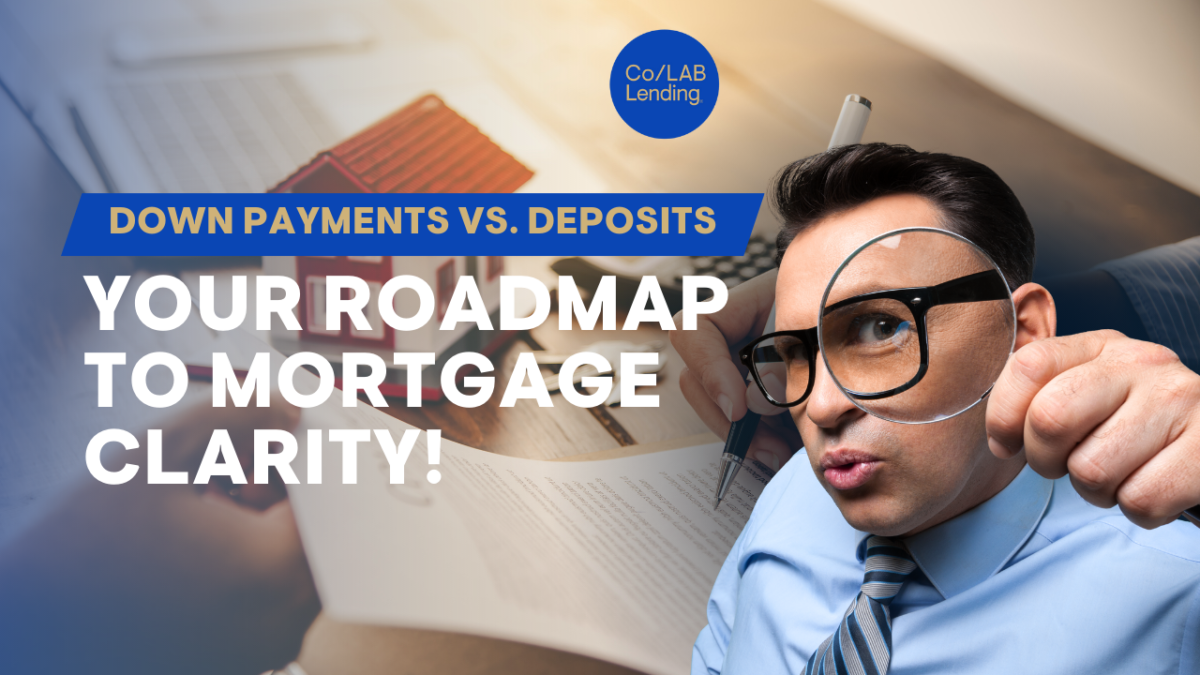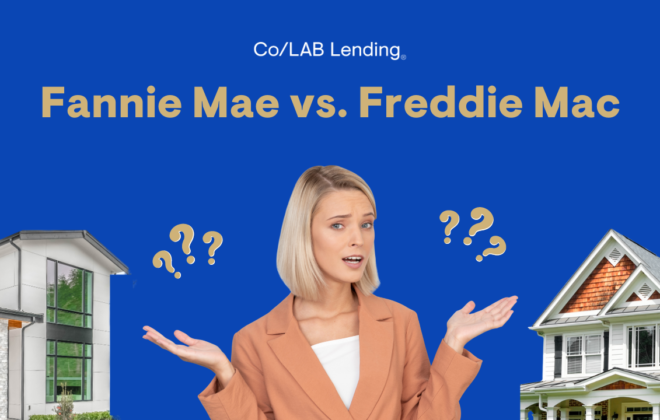Down Payments vs Deposits in Mortgages: Understanding the Difference
Introduction
When it comes to buying a home, understanding the financial aspects is crucial. Two terms that often come up are “down payments” and “deposits”. But what do these terms mean? And how do they affect your home buying process? Let’s delve into these concepts.
What Are Down Payments and Deposits in Mortgages?
A down payment is the initial payment you make towards the purchase price of your home. It’s typically a percentage of the home’s value. This payment reduces the amount you need to borrow, thereby potentially lowering your monthly mortgage payments. The down payment also plays a significant role in determining your loan-to-value (LTV) ratio, which can influence your loan terms and interest rates.
For instance, if you’re buying a $200,000 home and make a 20% down payment, you pay $40,000 upfront and borrow the remaining $160,000.
However, it’s important to note that a 20% down payment isn’t a hard and fast rule. Certain types of loans, for instance, may allow for a down payment as low as 3%. Let’s revisit our example of purchasing a $200,000 home. In this scenario, a 3% down payment would equate to just $6,000 upfront. This means you’d be financing a larger amount, specifically $194,000. Consequently, this could result in higher monthly payments and potentially a higher interest rate. It’s a balancing act of considering your immediate financial capabilities and your long-term financial commitments.
On the other hand, a deposit, also known as earnest money, is a sum of money you provide when you make an offer on a home. It shows the seller that you’re serious about the purchase. The deposit is typically held in an escrow account until the transaction is completed.
Following this, it’s worth noting that the amount of earnest money you offer can potentially influence a seller’s decision. In a competitive real estate market, a seller may be more inclined to accept an offer from a buyer who provides a larger deposit. Why is this so? Well, a larger deposit signifies a higher level of commitment to the purchase. It sends a clear message to the seller that you’re not only serious about buying the home, but you’re also willing to risk more of your own money on the outcome. This added assurance can often tip the scales in your favor when a seller is deciding between multiple offers.
Key Differences Between Down Payments and Deposits
While both down payments and deposits involve money upfront, they serve different purposes. A down payment is part of your financing arrangement. It directly affects how much you borrow, your monthly payments, and your interest rate.
A deposit, however, is more about securing the deal. It’s a good faith gesture showing the seller you’re serious about buying. If you back out of the deal without a valid reason, you could lose your deposit. But if everything goes smoothly, the deposit goes towards your down payment or closing costs.
Down Payments: How Much Do You Need?
The amount you need for a down payment can vary. For conventional loans, you might need around 20% of the home’s value. But government-backed loans, like FHA and VA loans, might require much less—sometimes as low as 3.5% or even 0% for eligible veterans.
Contrary to popular belief, a large down payment of 20% or more isn’t always necessary when purchasing a home. A study conducted by the National Association of Realtors revealed that almost half of potential homebuyers held this misconception. Even more surprising, one in ten individuals believed that a down payment of over 20% was required.
However, the reality is quite different. The same report highlighted that in 2021, the average down payment was considerably lower. First-time homebuyers, on average, made a down payment of just 7% of the home’s value. For those buying a home for the second time or more, the average down payment was slightly higher at 17%. This goes to show that the perceived barriers to homeownership may not be as insurmountable as they seem.
Deposits: Protecting Buyers and Sellers
Deposits serve as a form of security for the seller. If the buyer backs out without a valid reason, the seller keeps the deposit. This compensation helps cover the time and effort the seller put into the transaction.
Deposits indeed act as a safety net for sellers in real estate transactions. If a buyer decides to withdraw from the purchase without a legitimate reason, the seller is entitled to keep the deposit. This serves as a form of compensation for the seller’s investment of time and resources into the transaction.
For instance, a buyer might back out due to a change of heart, finding another property they prefer, or deciding they aren’t ready to buy a home. These are generally considered invalid reasons for backing out of a deal, and in such cases, the seller would typically retain the deposit.
On the other hand, there are circumstances where a buyer may rightfully reclaim their deposit. This usually happens when contingencies outlined in the contract are not met. Contingencies are specific conditions that must be fulfilled for the transaction to proceed. They might include the buyer securing a mortgage, the home passing an inspection, or the seller completing agreed-upon repairs.
For example, if a home inspection reveals significant issues that the seller is unwilling or unable to rectify, the buyer may choose to withdraw and get their deposit back. Similarly, if the buyer’s mortgage application is denied, the financing contingency would allow them to back out and reclaim their deposit.
In the event that the seller backs out of the deal, the buyer is typically entitled to a full refund of their deposit. This could occur if the seller decides not to sell the property, cannot clear a title, or fails to meet other contractual obligations. In such cases, the deposit serves to protect the buyer’s interests, ensuring they are not left empty-handed after investing time and resources into a transaction that did not come to fruition.
Pros and Cons of Larger Down Payments
Making a larger down payment can have several benefits. It reduces the amount you need to borrow, which can lower your monthly payments. It can also help you avoid private mortgage insurance (PMI), which lenders typically require if your down payment is less than 20%.
However, a larger down payment means tying up more of your money in your home. This could leave you with less cash for other expenses or investments. It’s important to consider your overall financial situation before deciding on your down payment size.
Conclusion
Understanding the difference between down payments and deposits is crucial when buying a home. Both play important roles in the transaction, but they serve different purposes. By understanding these concepts, you can navigate the home buying process more confidently and make informed decisions that align with your financial goals.
Frequently Asked Questions
1. Can I get a mortgage with no down payment?
Yes, some loan programs, like VA loans for veterans, offer 0% down payment options. However, not everyone will qualify for these programs.
2. How much should I put down as a deposit?
The amount varies, but it’s typically 1-2% of the purchase price. The exact amount will depend on local customs, market conditions, and the terms of your purchase agreement.
3. Can I lose my deposit?
Yes, if you back out of the deal without a valid reason, you could lose your deposit. It’s important to understand the terms of your purchase agreement before making a deposit.
4. Can I use a gift for my down payment?
Yes, many loan programs allow you to use gift funds for your down payment. However, you’ll need to provide documentation showing that the money is indeed a gift.
5. What happens to my deposit if the sale falls through?
If the sale falls through for a reason covered by your purchase agreement (like failing to secure financing), you should get your deposit back. But if you back out for a reason not covered by the agreement, you could lose your deposit.
Mortgage Consultation Today!
Categories
- Credit (4)
- FHA Loans (3)
- Finances (3)
- First Time Home Buyers (6)
- Grab Bag (7)
- Home Technology (1)
- Homebuying Tips (17)
- Inspiration (1)
- Insurance (3)
- Interest Rates (3)
- Loan Process (1)
- Mortgage Financing (14)
- Motivation (1)
- News (1)
- Press Release (8)
- Renovation (2)
- Self Employed (1)
- Tips & tricks (1)
- Uncategorized (134)
- USDA Loans (1)
- VA Loans (2)




